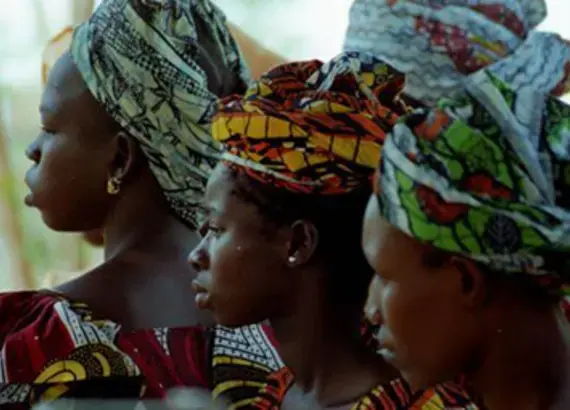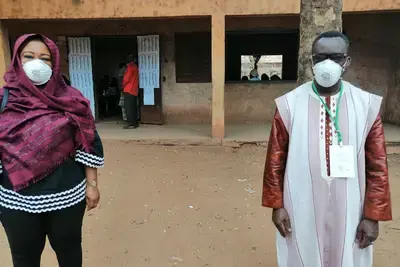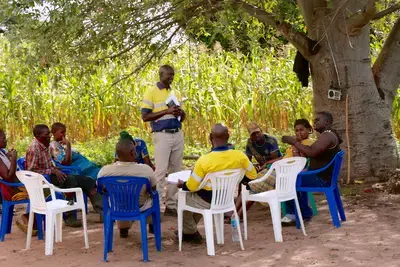
Success Story
Mali's Women Face Obstacles, But Are Eager to Engage in Public Life, NDI Study Finds
More than a year after national elections in Mali, the country continues to consolidate its nascent democratic institutions. Malian women face particular obstacles to meaningful political participation. According to a focus group report released by NDI, women participants identified a consistent lack of access to education, employment and electoral opportunities.
Women in Mali also suffer from a lack of representation in government; only 14 women were elected to parliament in last year’s legislative polls, accounting for less than 10 percent of members. Representation issues are reflected in legislation that hampers gender equality. For example, Mali’s 2011 Family Code specifies that men are the heads of households and that wives must be subservient to their husbands.
Despite these barriers, the focus group participants expressed a strong desire to engage in public life. “In our community, we do not have enough rights,” said one woman from Koulikoro. “We want greater involvement of women in politics.”
Mali has been wracked by political and humanitarian crises triggered by a military coup in 2012 that ousted the democratically elected government. In the ensuing power vacuum, rebel groups and extremist Islamic militants seized control of Mali’s north. In control of two-thirds of Mali’s territory, the Islamist radical groups imposed a harsh interpretation of Sharia law, precipitating the flight of thousands of Malians.
The burden of these upheavals has landed disproportionately on women, who must juggle traditional responsibilities -- such as cooking, cleaning and raising children -- with new roles as providers for their families, despite shrinking opportunities. “The woman is the pillar of the community,” said one participant. “Women support [the] family’s expenses, because men are unemployed.”
“The role of women has seen much change in recent years,” said a woman from Banconi. “Before, our mothers were satisfied with what our fathers brought back home. But nowadays, as long as the woman does not get up to look for money, there is no food.”
The focus group study was designed to help Malian officials and politicians better understand the opinions and concerns of women, as well as the challenges they face.
The report is based on 12 focus group discussions that took place in late April involving 118 women from all eight of Mali’s regions and the capital of Bamako. The focus groups were representative of the majority ethnic groups of each region. Groups were further organized according to age and level of education.
The scarcity of jobs is in part a product of poor access to education, especially for girls. However, participants felt that employment opportunities were scarce even for those with degrees. “Those who are educated do not have access to employment,” complained one woman from Kayes, “and those who are not educated have no income generating activities.”
Focus group members expressed concern about the paucity of representation of women in government, as political parties rarely endorse female candidates. “In developing the [electoral] lists, the party is putting the names of five or six men before putting the name of a woman,” said a young woman from Bandiagara. “I think it’s not fair. I want women to be on the list.”
Indeed, many of the women saw political parties as corrupt, dishonest and unresponsive. “They charm us during the electoral campaigns,” said another participant, who is living in Bamako after being displaced from her home. “But after they [are elected], they forget about us.”
Still, participants were widely enthusiastic about broadening women’s engagement with civil society. “To claim our rights, women should actively participate in civil society organizations,” said one young woman from Kita.
The focus groups are part of NDI’s 30 month-long Mainstreaming Gender in Electoral and Political Processes program, funded by the Royal Danish Embassy in Mali. Past efforts include a February meeting of Malian gender and legal experts to draft a law to increase representation of women in government.
Read more:
Published Sept. 5, 2014



